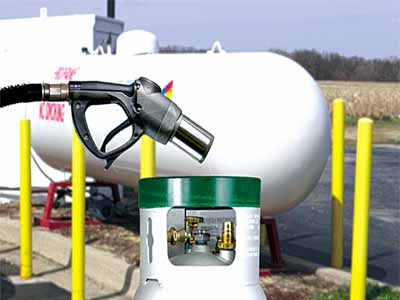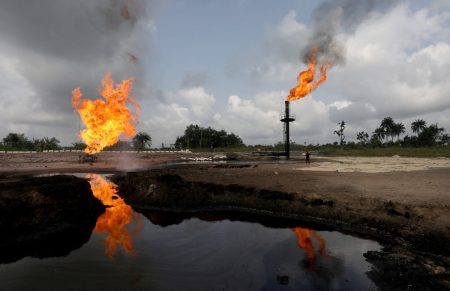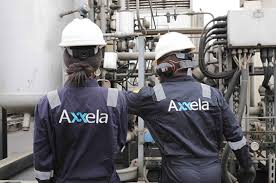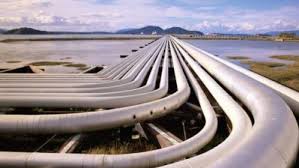
*As supply dips by 5.5%
OpeOluwani Akintayo
Lagos — Nigeria may experience shortage of cooking gas supply especially as the yuletide approaches- market survey shows price approaching N10, 000 per 12.5kg as speculated by marketers.
SweetcrudeReports findings showed that supply dipped by 5.5 percent to 85,066.546 metric tonnes, MT, in September, from 90,017.002 MT recorded in August 2021.
As a result, price of a 12.5kg is currently between N8,500 and N8, 700 depending on the location, indicating that prices could hit between N9,000 and N10,000 in a matter of days to Christmas.
The price of the cooking gas stands at N8, 000, N4,600 and N4,000 for 10kg, 5kg and 3kg respectively.
Nigeria has since the last quarter of last year, experiencing continuous rising prices of cooking gas.
The Petroleum Products Pricing Regulatory Agency, PPPRA (now known as the Nigeria Midstream and Downstream Petroleum Regulatory Agency) latest LPG report for September 2021 released weekend, stated that, of the 85,066.546 MT supplied, 51,847.085 MT were sourced locally, representing 60.95 percent, while 33,219.461 MT, representing 39.05 percent were imported.
It also stated that a bulk of the domestic supply was sourced from the Nigeria Liquefied Natural Gas, NLNG, while the imports came mainly from the United States, Algeria and Equatorial Guinea.
Nigeria houses a huge amount of natural gas of over 200 trillion standard cubic feet.
According to marketers, soaring prices was heralded by increasing price at the international market, as well as the introduction of 7.5 per cent import tax by the Nigeria Customs Service, NCS.
Findings revealed that depot price per 20 metric ton (MT) as of Friday was N11.1 million at NIPCO, N11.1 million at Navgas, N11.05 million at Matrix in Warri, N11.05 at Prudent in Oghara and N11.1 million at Stockgap, Port Harcourt. The price is the same at Rainoil, Techno Oil, and 11 PLC Apapa.
A survey also published by The Guardian shows rising prices from N4,500 to about N8,800 per 12.5kg in Jos; N8,450 in Ota, Ogun State; N8,900 in Benue; N8,450 in Jigawa; N8,470 in Benin City; N8,950 in Badagry; N8,800 in Ijebu Ode, and N8,850 in Port Harcourt, among others.
A source close to the matter told SweetcrudeReports of the need for government to review its policy on import tax to encourage local supply of LPG.
The Nigerian Liquefied Natural Gas Limited, NLNG currently supplies 40 percent of LPG in Nigeria, while 60 percent is being imported.
Although NLNG promises to increase supply however, the firm is yet to concretize the boost.
President of Nigeria Liquefied Petroleum Gas Association, NLPGA, Nuhu Yakubu, recently said the group is in talks with the government to address lingering issues, including access to foreign exchange, value-added tax, levies, among others, hoping that their efforts will yield positive results in good time.
He said: “The high prices of LPG have shifted the demand for firewood and charcoal, thus fueling desertification and erosion with a very negative impact on the environment.”
He urged that a package of new incentives should be introduced to stimulate investment, processing and utilisation of LPG in Nigeria in line with the nation’s Decade of Gas agenda.
According to him, the sector faces some challenges especially foreign exchange, high prices and instability.
“As an association, we are currently engaging with respective government agencies in addressing issues around LPG supply, particularly access to foreign exchange, value-added tax, levies, etc. We believe our efforts will yield positive results in good time.
“Also, it is not far-fetched to state, therefore, that sustaining the growing adoption of LPG through sector-friendly policies and programs will inadvertently support economic growth that will yield jobs and wealth creation. It is our collective responsibility to make this happen and an event such as this is one aimed at setting the pace.
“In line with the 7th Sustainable Development Goals (SDGs), deepening education on the role of diverse applicable uses of LPG is critical as the world aims to provide cleaner, reliable, sustainable and affordable energy sources for everyone by 2030. Worthy of mention is the declaration of the Decade of Gas, by the Honorable Minister of State for Petroleum Resources, Chief Timipre Sylva with the support of the President and Commander in Chief, Retired Gen. Muhammadu Buhari, GCON, who ably doubles as Minister of Petroleum Resources.
“The LPG sector is projected as an industry with this executive posturing to galvanize the entire LPG value chain to drive an upsurge adoption of LPG in spurring growth and improving the wellbeing of households across Nigeria,” he said.
Further findings revealed that high prices of LPG have shifted the demand for firewood and charcoal, thus fuelling desertification and erosion with a very negative impact on the environment.



